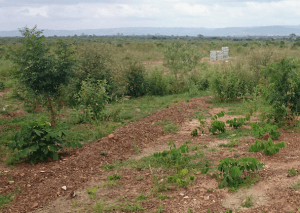Ghana hosts International Land Forum
 The 2016 International Land Conference has started in Accra to enable participating countries deliberate on land policies and reforms and their impact on food security and poverty reduction in Africa.
The 2016 International Land Conference has started in Accra to enable participating countries deliberate on land policies and reforms and their impact on food security and poverty reduction in Africa.
The three-day conference and Regional Assembly meeting, organised by International Land Coalition (ILC) is being hosted by Civil Society Coalition on Land (CICOL) on the theme: “Promoting People-Centered Land Governance in the implementation of the post 2015 agenda: Challenges and opportunities in Africa.”
The forum would also enable participants to understand the intricacies of land rights and governance issues within the framework of the Sustainable Development Goals (SDG).
Among participating countries are Ghana, Nigeria, South Africa, South Sudan, Togo, Benin, Zimbabwe, Kenya, Madagascar, Burundi, Malawi, Democratic Republic of Congo and Zambia
Nii Osah Mills, Minister of Lands and Natural Resources, said land governance in Africa had become a critical component of the development agenda as many African governments and institutions see it as a critical structural tool for transformation of their economies.
He said in Ghana, more than 73 per cent of Gross Domestic Products is related to the land economy with a land area of 23 million hectares, making about 95 per cent of cultivable land.
Nii Mills said between 2001 and 2006, African Governments committed themselves to improve land policies, governance, rights and administration through the African Union Platform that also brought about the establishment of the Land Policy Initiative.
He said Ghana, on her part also introduced the Land Administration Project (LAP) 13 years ago which has made considerable achievement in the transformation of the land administration system in the country.
He said LAP, was embarked upon by the Government as part of efforts to improve the governance system in land administration by improving access to land, ensuring security of title to land and facilitating institutional capacity development in land administration agencies.
He said through the LAP, a new Draft Land Bill for Ghana had gone through the process of stakeholders’ consultation and was being formulated for Cabinet approval.
LAP, has also given birth to the establishment of a network of civil society organisations and individuals working on land in Ghana called CICOL, while a Rural Parcel Rights Boundary Demarcation has been established to enhance the voices of the rural folks and their participation in land governance, he noted.
The Minister said in order to promote people-centered Land Governance in the implementation of the Post 2015 Agenda, good land administration and trusted land information system was very fundamental to ensure responsible governance of tenure, managing the land use, coping with climate change, enforcing equity and human rights as well as achieving sustainable development.
“As we strive to pool resources and efforts together to improve our land administration system in Ghana, it is my hope that together, we will work to strengthen the voice of Africa in our participation in good land governance to end poverty and improve the livelihoods of the poor and marginalised in our environment” he said
Naa Professor John S. Nabilla, President of the National House of Chiefs, said land continues to be the subject of conflicts between local populations, investors, the state and mining companies while the high demand on land and its management has brought about challenges of indeterminate boundaries of stool/skin lands resulting directly from lack of reliable plans, and the use of unapproved old inaccurate maps, leading to land conflicts and litigation between stools, clans and other lands owing groups.
Prof Nabila said the LAP through the Office of Administrator of Stool Lands has assisted customary authorities to work with formal land administration agencies to enable the development of procedures that are simple and cheap with more formal survey and registration procedures for landholders and customary administrations through the strengthening of old laws and establishment of new ones, for proper record keeping, and prevent or reduce multiple sales of land.
Prof Nabila expressed the hope that participatory countries would learn from each other’s innovations in the management of customary lands and sharing of current land reforms and policies across Africa.
Mr Richmond Antwi Bediako, Chairman of CICOL, said members of the Coalition have met to promote and secured equitable access to and control over land; reduce poverty and contribute to identity, dignity and inclusion, especially of women and marginalized in land administration and ownership in Africa.
“We believe the varied expertise and experience from various African countries models of land governance, policy reform and general reform of land administration will create the opportunity for learning and sharing of best practices,” he said.
Mr Mike Taylor, Director of International Land Coalition, said statistics reveals that 65 per cent of land is claimed by communities globally, but only 10 per cent have legal protection and are registered by governments, leading to insecurity.
Therefore, the meeting would help come out with an action plan that would help address such insecurity and restore orderliness in land administration.
Source: GNA
